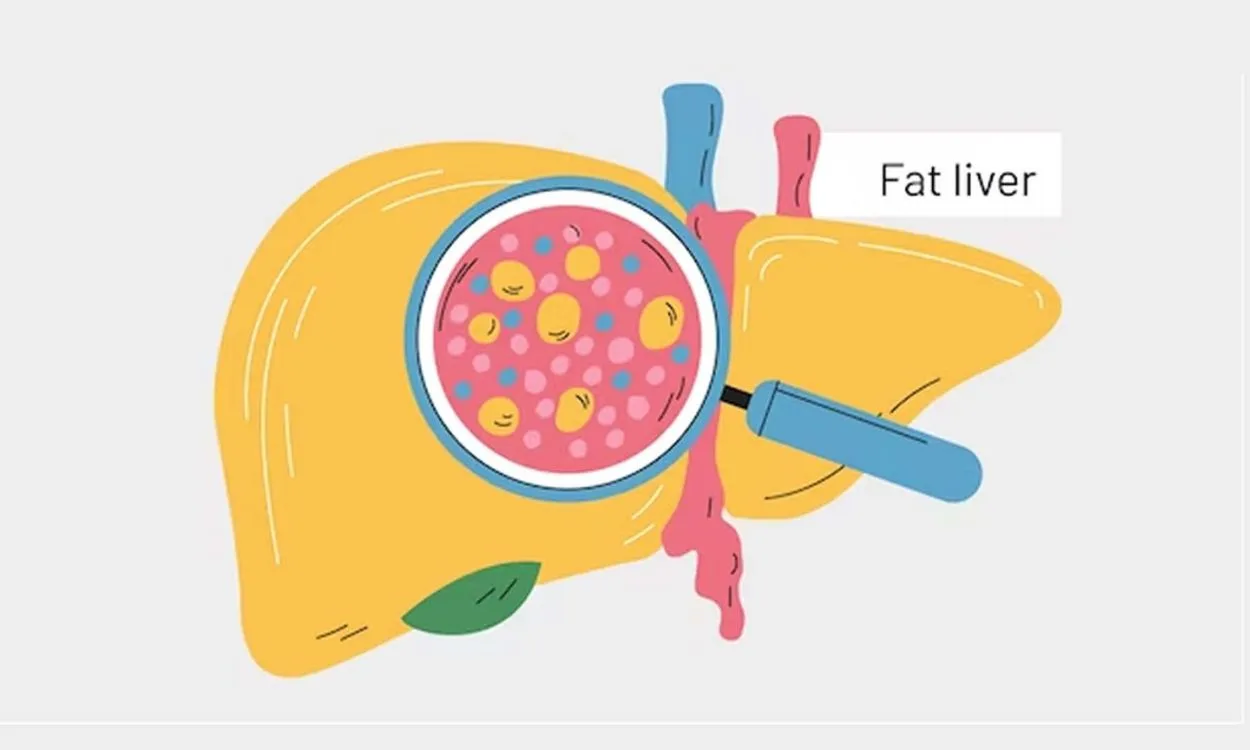Can Fatty Liver Cause Weight Gain?
Fatty liver, also known as hepatic steatosis, is a condition characterized by the accumulation of fat in the liver cells. It is commonly associated with excessive alcohol consumption, but non-alcoholic fatty liver disease (NAFLD) is becoming increasingly prevalent, especially among the Indian population.
Fatty liver itself is not directly responsible for weight gain. However, it is closely related to lifestyle factors that can contribute to weight gain.
Here’s a detailed explanation of how fatty liver and weight gain are interconnected:
- Metabolism Impairment: Fatty liver affects the normal metabolic functions of the liver, such as breaking down fats and carbohydrates. This impairment can lead to insulin resistance, an underlying cause of weight gain.
- Increased Fat Storage: When the liver is unable to process fats efficiently, they accumulate in the liver cells. This excess fat can spill over into the bloodstream and be stored as visceral fat in the abdominal area, leading to weight gain.
- Hormonal Imbalance: Fatty liver can disrupt the balance of hormones involved in appetite regulation, such as leptin and ghrelin. This imbalance can increase hunger and cravings, leading to overeating and weight gain.
- Inflammation and Insulin Resistance: Fatty liver is associated with chronic low-grade inflammation and insulin resistance. These conditions can promote fat deposition and hinder fat breakdown, contributing to weight gain.
- Sedentary Lifestyle: People with fatty liver often experience fatigue and reduced physical activity due to the condition. A sedentary lifestyle, coupled with the metabolic changes caused by fatty liver, can lead to weight gain.
It’s important to note that weight gain itself can also contribute to the development or progression of fatty liver. Excess body weight, especially abdominal obesity, is a risk factor for NAFLD.
While fatty liver can indirectly contribute to weight gain, it’s crucial to address the underlying causes and make lifestyle changes to manage both conditions effectively.
Now, if you’re looking for a solution to tackle fatty liver and achieve your weight loss goals, the Fitpaa app can be an excellent tool.
Here’s how Fitpaa can help:
- Personalized Metabolism Assessment: Fitpaa’s advanced technology allows for a comprehensive metabolism assessment, taking into account your lifestyle, eating habits, and overall health condition. This assessment helps identify the root cause of your health condition and provides insights for effective management.
- Fitpaa Capsule: Fitpaa’s expert team of fitness coaches, nutritionists, and doctors develop a personalized Fitpaa Capsule based on your metabolism, health, and fitness goals. This capsule combines medical therapy, exercise therapy, nutrition therapy, and cognitive behavioral therapy to optimize your metabolism and support your weight loss journey.
- Real-Time Guidance: Fitpaa’s real-time guidance technology incorporates habit-building techniques, timely nudging, and purpose-finding from cognitive behavioral therapy. It provides guidance throughout the day, releasing hormones that keep you motivated, inspired, and on track to achieve your desired results.
- Fitpaa Mobile App: The Fitpaa mobile app offers a range of features to make your weight loss journey easier and more enjoyable. It includes a virtual workout trainer, diet tracker, performance tracking, progress tracking, and more. The app provides the tools and support you need to follow your personalized Fitpaa Capsule effectively.
By following your Fitpaa Capsule and utilizing the features of the Fitpaa app, you can not only manage fatty liver but also achieve your weight loss goals with guaranteed results.
Download the Fitpaa app now and experience the joy of getting fit, healthy, and confident. Your well-being is our mission, and we are here to help you every step of the way.
Remember, with Fitpaa, nothing is impossible!









